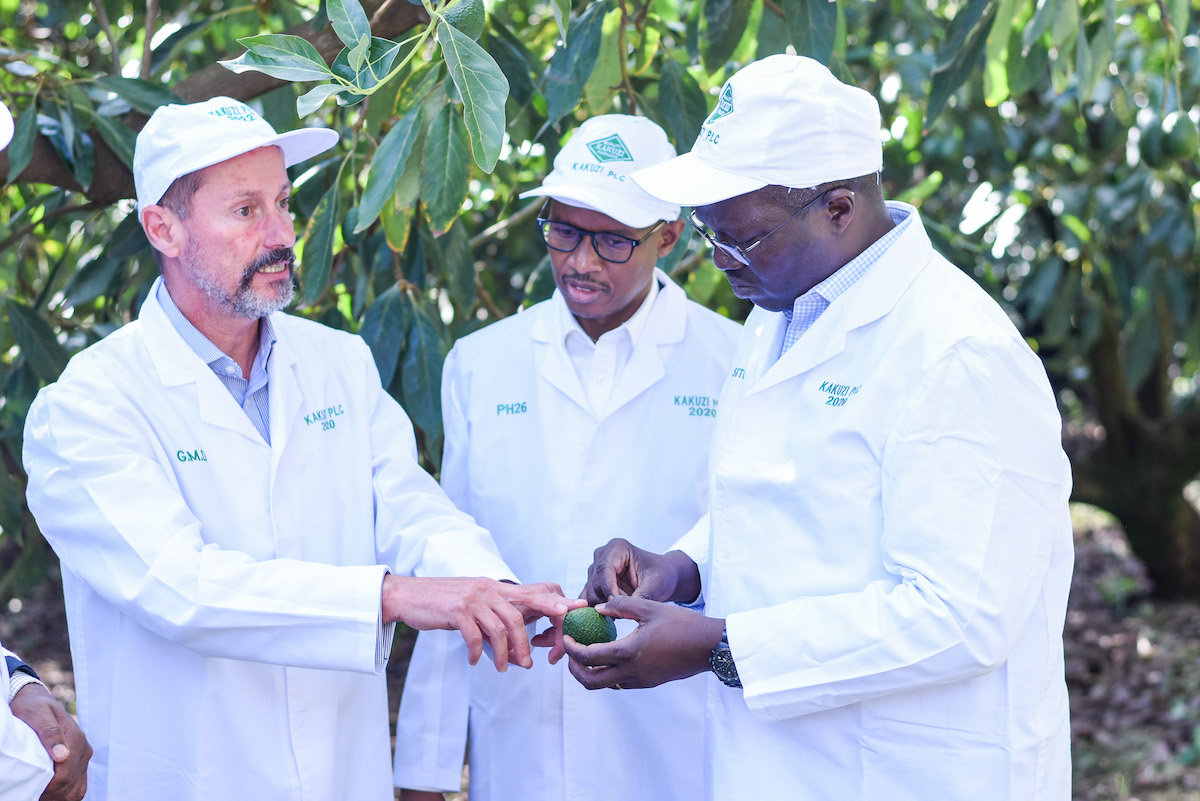Kenya has plans to use co-operative societies to position itself as a leading superfoods producer and exporter. Co-operatives and Micro, Small and Medium Enterprises Cabinet Secretary, Mr Simon Chelugui, says the government is zeroing in on the $171.8 billion global superfoods market as part of the agricultural transformation deliverables under the Bottom-Up Economic Transformation Agenda (BETA).
Speaking during a fact-finding tour of listed agribusiness and superfoods producer, Kakuzi Plc orchards and Packhouse in Murang’a County, Mr Chelugui said the government is focusing on sustainable agricultural value chain reforms. This will give global market access for Kenyan avocado, macadamia, and blueberry farmers, by harnessing the latent power of co-operative societies and MSMEs as the world’s enthusiasm and demand for superfoods grows.
Globally, as consumers strive to enrich their dietary diversity, superfoods have gained popularity as they are naturally loaded with high dietary fibre, vitamins, minerals, phytochemicals, and complex carbohydrates. Besides the nutritional benefits, superfoods also assist in improving digestion, reducing blood glucose, minimising inflammation, lowering blood cholesterol, and preventing chronic health issues such as diabetes, heart disease and obesity.
According to global research firm IMARC Group, the global superfoods market size reached $171.8 billion in 2023. IMARC Group expects the market to reach $262.3 billion by 2032, exhibiting a growth rate (CAGR) of 4.6% during 2024-2032. The escalating demand for superfood-infused snacks, the rising adoption of veganism and vegetarianism, and the growing consciousness about preventive healthcare measures are some of the major factors propelling the market.
> Kenya’s Stock Market Receives a Major Boost After Performance Upgrade
Conscious of the growing market opportunity, the Kenya government will adopt a public-private partnership with leading growers such as Kakuzi to provide much-needed technical capacity for local farmers under the co-operatives movement.
“Kenya is already doing well in producing superfoods such as avocado, macadamia, and blueberries, which are also beginning to feature. We are number five in avocado exports and can easily get to number one, but only if we maintain global standards relating to crop husbandry, traceability, and sustainability, as every fruit exported carries Kenya’s reputation,” Mr Chelugui, the Kenya Cabinet Secretary for Co-operatives, said.
“Our co-operative societies and other MSME Agri-business players have an opportunity to learn and forge partnerships with large players such as Kakuzi, who are willing to provide capacity building in farmer training, marketing, and extension services to enable us to play in the top league as quality superfoods producers and exporters.”
Kakuzi PLC Managing Director Chris Flowers said the company is the single largest producer of avocados and macadamia nuts in Kenya, accounting for an estimated 12% of all avocados exported from Kenya.
Smallholder development
Mr Flowers said the company was also the first Kenyan company to undertake commercial blueberry production. “We believe blueberries are yet another key crop that will build Kenya’s export earnings and international reputation as a key agricultural producer of superfoods,” Mr Flowers said.
Kakuzi has been undertaking a smallholder development initiative that educates and builds the capacity of Kenyan farmers. Under its Kakuzi Academy platform, the firm provides extension services to more than 3,000 farmers across the Country.
According to the Kenya National Bureau of Statistics, in the first three quarters of 2023, the agriculture sector rebounded strongly following improved weather conditions and the impact of fertilizer and seed subsidies provided by the Government. The sector grew by 6.1% in the first quarter, 8.2% in the second quarter, and 6.7% in the third quarter.
The strong performance was reflected in enhanced production, especially in food crops that significantly increased such as tea, coffee, vegetables, and fruit exports. However, production of cut flowers and sugarcane declined during the period.
> IMF Economist Explains Why Kenyans Will Keep Paying High Taxes













Leave a comment